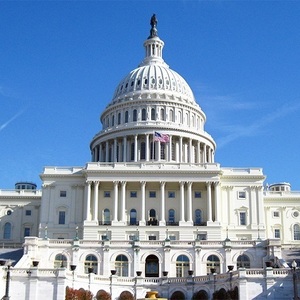Senators to Trump: Direct EPA to reject all calls to waive RFS

May 7, 2020
BY Ron Kotrba
A bipartisan group of 24 U.S. senators, including Sens. Joni Ernst, R-Iowa; Tina Smith, D-Minnesota; Chuck Grassley, R-Iowa; and Debbie Stabenow, D-Michigan, sent a letter to President Trump urging him to direct the EPA to swiftly reject recent petitions from five state governors for a general waiver of the 2020 Renewable Fuel Standard. The National Biodiesel Board and the Iowa Biodiesel Board commended the senators for supporting biodiesel producers, reiterating their conclusion that waiving the RFS will cause unnecessary harm to the rural economy.
“America’s biodiesel producers appreciate the strong leadership of [the senators] in opposing efforts to undermine the Renewable Fuel Standard,” said Kurt Kovarik, vice president of federal affairs for NBB. “Biodiesel and renewable diesel producers are an important part of the nation’s critical agriculture infrastructure, which is already experiencing painful effects of the national economic crisis. Maintaining a strong RFS will be important to the rural economy’s recovery.”
Grant Kimberley, executive director of the IBB, said, “We commend our senators for recognizing that unlike the oil industry, the biodiesel industry had already endured years of hardship and struggle, exacerbated by the administration’s vacillating commitment to the RFS. This has cost real jobs in the heartland and contributed to the farm crisis. We are grateful to Sens. Ernst and Grassley for repeatedly standing up to refiners and defending the RFS, an extremely successful energy policy when working as Congress originally intended. We urge the administration to see through the oil industry’s latest ploy to avoid their legal obligations and return to their unchallenged monopoly on America’s energy supply.”
Advertisement
Advertisement
An RFS waiver would prevent biofuel producers and farmers from fully sharing in any economic recovery this year, Kovarik said. “RFS requirements do not contribute to the crisis,” he explained, “because they are set as percentages that rise and fall in direct proportion with transportation fuel demand.”
Advertisement
Advertisement
Related Stories
The U.S. Department of Energy’s Office of Energy Efficiency and Renewable Energy is soliciting public comments on a preliminary plan for determining provisional emissions rates (PER) for the purposes of the 45Z clean fuel production credit.
A new study published by the ABFA finds that the U.S. EPA’s proposal to cut the RIN by 50% for fuels made from foreign feedstocks, as part of its 2026 and 2027 RVOs, could stall the growth of the biomass-based diesel (BBD) industry.
Reps. Mike Flood, R-Neb., and Troy A. Carter, Sr., D-La., on July 21 reintroduced the SAF Information Act. The bill directs the U.S. EIA to more explicitly include SAF data in its weekly and monthly reports.
The U.S Department of Energy Bioenergy Technologies Office, in partnership with the Algae Foundation and NREL, on July 21 announced the grand champion and top four winning teams of the 2023 - 2025 U.S. DOE AlgaePrize Competition.
The European Commission on July 18 announced its investigation into biodiesel imports from China is now complete and did not confirm the existence of fraud. The commission will take action, however, to address some systemic weaknesses it identified.
Upcoming Events










